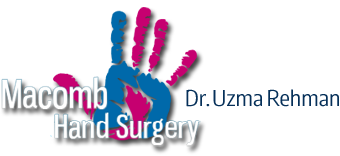Understanding Frozen Shoulder (Part 1): Symptoms & Causes
Adhesive capsulitis, more commonly known as frozen shoulder, is an ailment marked by painful stiffness in the joint of the shoulder. Symptoms of frozen shoulder typically manifest slowly over time, gradually worsening, and then resolving during the span of one to three years.
Symptoms of Frozen Shoulder
Generally, frozen shoulder develops gradually. There are three stages of frozen shoulder, each of which can last several months.
During the freezing stage, moving your shoulder in any way results in pain, and the range of motion in your shoulder becomes significantly diminished.
During the frozen stage, the pain may begin to subside, but the shoulder stiffens substantially. During this stage, it becomes the most difficult to move your shoulder.
During the thawing stage, the shoulder’s range of motion begins to return to normal.
In some cases, the pain associated with frozen shoulder is worse at night, occasionally enough to disrupt sleep.
Causes of Frozen Shoulder
As frozen shoulder can occur with or without trauma occurring to the shoulder, there is no one universal cause of frozen shoulder. However, one of the main factors that can result in frozen shoulder is going long spans of time without moving your arm. This frequently occurs during the process of recovering from injuries that require the arm to be placed in a sling.
Long periods of arm and shoulder immobility (such as when one recovers from an injury or suffers from a stroke) often cause frozen shoulder. If you’ve experienced an injury that has resulted in difficulty moving your shoulder, it is imperative to engage in exercises to help main your range of movement and prevent developing frozen shoulder.
The tendons, ligaments, and bones of which your shoulder is comprised are covered by a layer of connective tissue. When this tissue tightens and thickens around the shoulder joint, frozen shoulder occurs, resulting in significantly restricted movement.
Frozen shoulder is more likely to occur in diabetics, women in their 40s to 60s, and in people who were recently forced to leave their shoulder immobile while recovering from surgery or injury to the arm.
Risk Factors for Developing Frozen Shoulder
If you’re recovering from a condition or medical procedure that required you to refrain from arm movement -such as a mastectomy or a stroke- you are at a higher risk for developing frozen shoulder.
People over the age of 40, women in particular, also face a greater risk of developing frozen shoulder. If you’ve experienced a lengthy period of immobility or had the mobility of your shoulder reduced, you also face a greater risk of developing frozen shoulder. There are numerous factors that can result in immobility of the shoulder, including a broken arm, strokes, rotator cuff injury, systemic diseases, and recovering from surgery.
Those suffering from certain other medical issues may also be at higher risk of developing frozen shoulder. Diseases associated with developing frozen shoulder include tuberculosis, cardiovascular disease, Parkinson’s disease, diabetes, and both overactive and underactive thyroid.
Clarkston Frozen Shoulder Doctor
If you are suffering from an injury or pain in your fingers, wrist, elbow, arm or shoulder, contact board certified Clarkston, MI surgeon Doctor Rehman for a comprehensive evaluation and consultation. As with most medical conditions, early detection, awareness, and a prevention or treatment plan is the most effective way to combat the effects of frozen shoulder.
Doctor Rehman will assess your individual situation, and prescribe the frozen shoulder treatments and therapies that are best for you.

